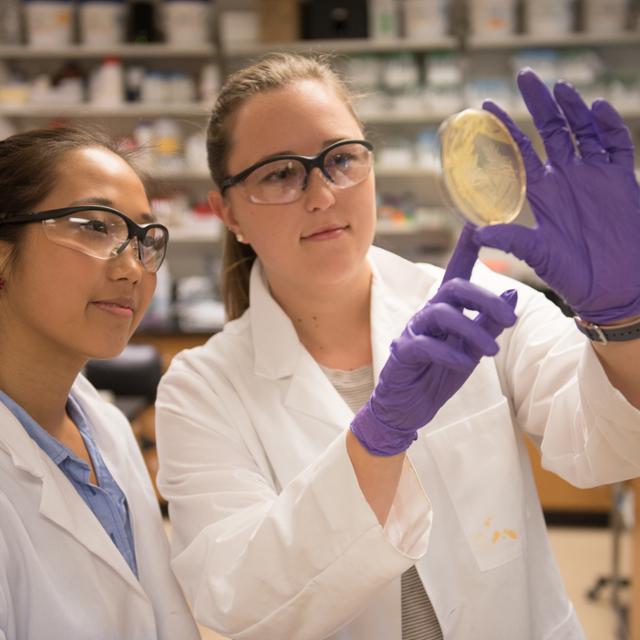Research Q&A
Engaging undergraduate students in research is a key component of our mission

Why do undergraduate research?
Undergraduate research offers students the opportunity to apply what they have learned in the classroom while making connections with their faculty mentor and other students in the laboratory. Students engaged in research develop a variety of transferable skills including problem solving, critical thinking, reading comprehension, and oral and written communication that make them well prepared for future careers in science.
What to expect?
Since areas of research in our department are diverse, the specific expectations for undergraduate students pursuing research vary between faculty mentors. However, all students should expect that meaningful research requires time, commitment, and resilience. Students can expect support from TCU in the form of hands-on mentorship and training, as well as funding for research supplies. Some students even have the opportunity to present their research at scientific conferences and co-author articles in scientific journals. Most of all, students can expect a fun and rewarding experience!
When to get started?
Students pursing research with Biology faculty typically start by the first semester of their junior year or earlier. This ensures that students have sufficient time to develop necessary research skills, complete their projects, and communicate their results prior to graduation. The decision of when to begin undergraduate research will depend not only upon the student’s schedule and availability of positions within a given laboratory, but also upon what a student and faculty member collectively hope to gain from the experience.
How to get started?
Students considering research should first explore faculty areas of research to identify possible mentors and then contact faculty to discuss specific opportunities in their laboratory.
Can I get course credit for research?
Undergraduates engaged in research may elect to receive up to six hours of course credit. The Department offers three different research-related courses including Independent Research (Biol 40900), Biological Research and Writing (Biol 40803), and Senior Honors Research (Biol 40033). Both Biological Research and Writing and Senior Honors Research carry a writing emphasis (WEM) designation, helping students meet core curriculum requirements.